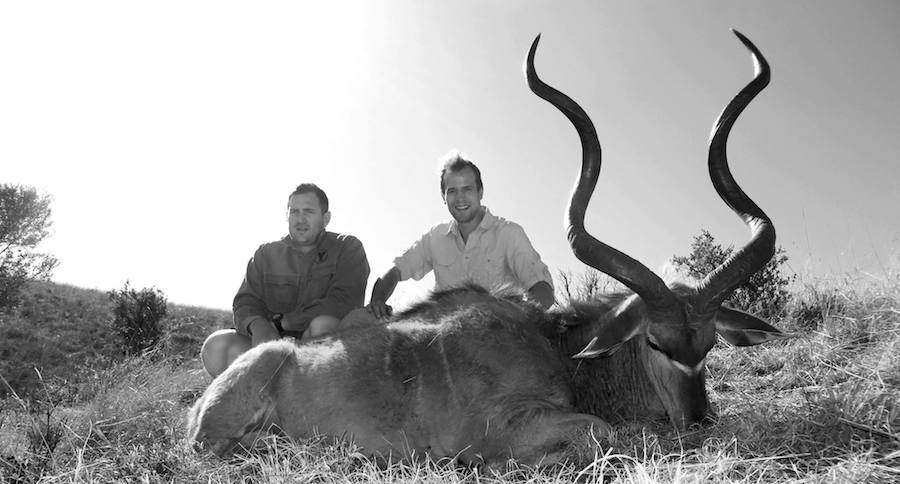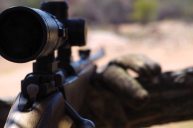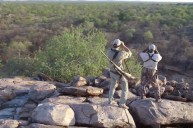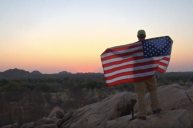Planning a hunting safari in Africa can be intimidating, especially for the first time. Here's some help on how to choose the right outfitter.
Just like any other industry, there are a few bad apples scattered among the hundreds of outfitters in Africa. Fortunately, most African hunting outfitters are honest, capable and will work their tails off to make sure you have a safe, fun and successful hunt.
That being said, there is a big difference between "good" and "great" in the African Safari hunting business.
While problems occasionally do arise on hunting safaris, horror stories about Africa tend to get blown out of proportion and aren't nearly as common as they're made out to be (probably about as common as bad hunts in the USA). The good news is that you can avoid most of the problems people run into over there by doing your homework before booking a hunt.
Here are a few things to keep in mind that'll help you choose a good African hunting outfitter.
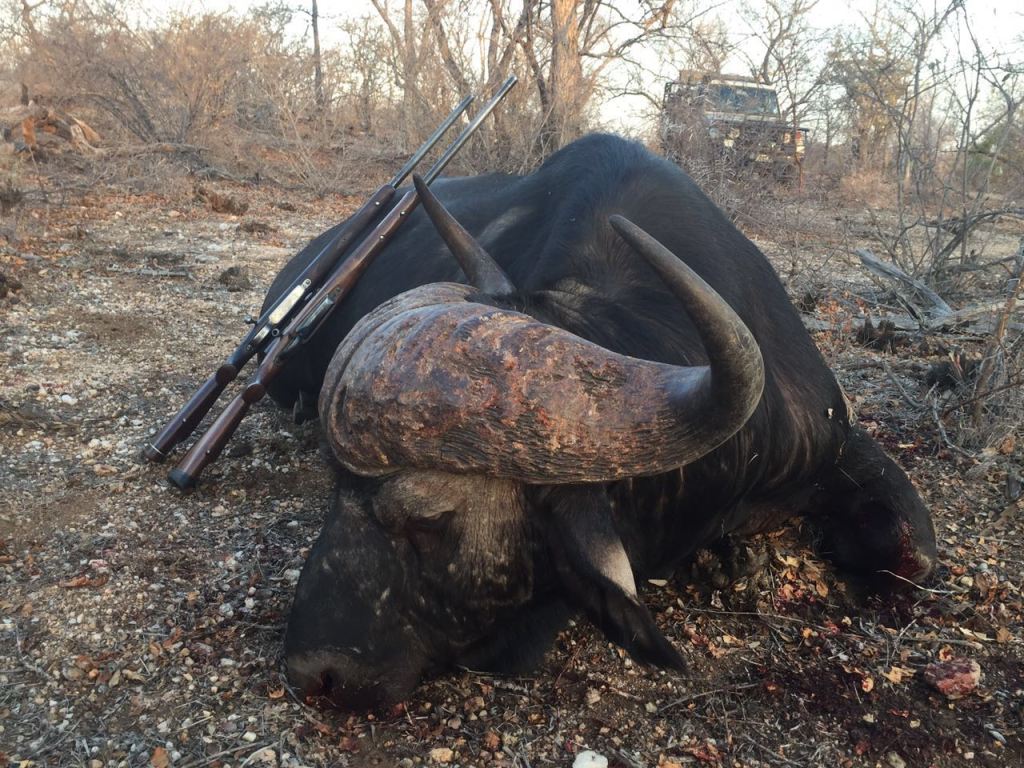
Beware the Cheap Outfitter
It's true that an African hunting safari is generally very affordable and might just be one of the best hunting bargains out there.
However, there are more than a few places selling "cheap" or "discount" African hunts. Unfortunately, many of the stories about bad experiences in Africa are told by people who booked with the cheapest place they could find and got what they paid for in every aspect of the hunt.
Now, not all of the African hunting outfitters with low prices are bad. By the same token, not all places with high prices are good either.
With that in mind, I'll say that places charging significantly below the typical price range for a given hunt are probably taking a shortcut somewhere, or potentially even doing something illegal or unethical.
This is not a hard-and-fast rule, though. For instance, cancellation hunts are a great way to have an outstanding safari at a reasonable price.
When looking for an outfitter in Africa, keep an old saying in mind: if something seems too good to be true, it probably is!
Beware Of Outfitters Booking Multiple Groups At Once
Speaking of shortcuts, the first place African hunting outfitters normally try to cut corners is by booking multiple groups at the same time. No matter what they say, sharing a hunting area with another group of hunters detracts from your overall experience as well as theirs. While this is less of a consideration when you're hunting on a really big parcel of land, it's still something to keep in mind.
You're spending thousands of dollars and flying halfway across the world to go on this hunt. Do you really want to be sharing the place with some people you don't know?
Or, would you rather book with a different outfitter who can offer you individual attention and treatment?
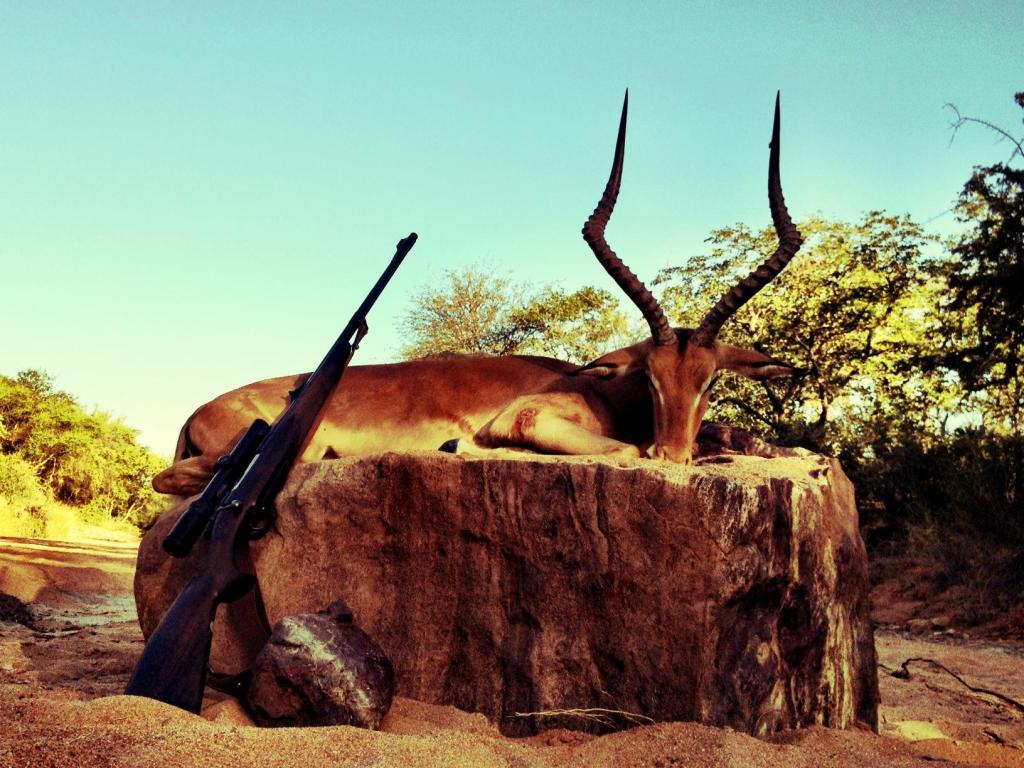
Professional Hunters' Associations
Known in Africa as Professional Hunters (PHs), a good guide is often the difference between a good and a bad hunt. Virtually every country in Africa has a Professional Hunters' Association of some sort, and the associations have some self-policing capability to ensure that the members abide by a specific code of conduct and hunting ethics. The vast majority of the reputable PHs in Africa are members of one or more of these associations.
These associations also provide some recourse for hunters who had the misfortune of booking with an unscrupulous outfitter. Obviously, they can't do much to assist with complaints about an outfitter who isn't a member.
For these reasons, it should be a big red flag if your prospective guide isn't a member of a Professional Hunters' Association.
Get All Details Regarding Hunting Packages
Some African hunting outfitters have slightly different views on what is included in a hunting package.
Generally speaking, gratuities, your airline ticket, taxidermy and shipment of your trophies home are the main extra costs you'll need to worry about. However, you should verify what else you're on the hook for before committing to a hunt. Airport pick-up and drop-off, Value Added Tax (VAT), plane charter (if necessary), alcohol and the shipment of your trophies to a taxidermist are just a few things that might cost extra, depending on the outfitter.
It sounds simple, but you should verify what airport the outfitter is picking you up at because it can have a gigantic impact on the logistics of the trip. For instance, outfitters in South Africa's East Cape will usually pick hunters up at the airport in Port Elizabeth. Since most international flights into South Africa arrive in Johannesburg, this necessitates an additional airline trip (and sometimes an overnight stay) after arriving in South Africa.
Additionally, if you bring your own rifle to South Africa, you'll need to get a temporary import permit from the South African Police upon arrival in Johannesburg. While some outfitters will assist you through the process of filling out the SAPS 520 form, get you a pre-approved firearms permit, and assist you with clearing your rifle with the police, many outfitters do not, especially if they are not picking you up in Johannesburg. This means you'll either need to handle the process with the police yourself (which is possible, but can take several hours) or pay a couple hundred dollars for the services of a firm specializing in firearm import permits.
So, that one minor detail can have a big impact on the trip and add several hundred dollars or more to the overall cost of your hunt.
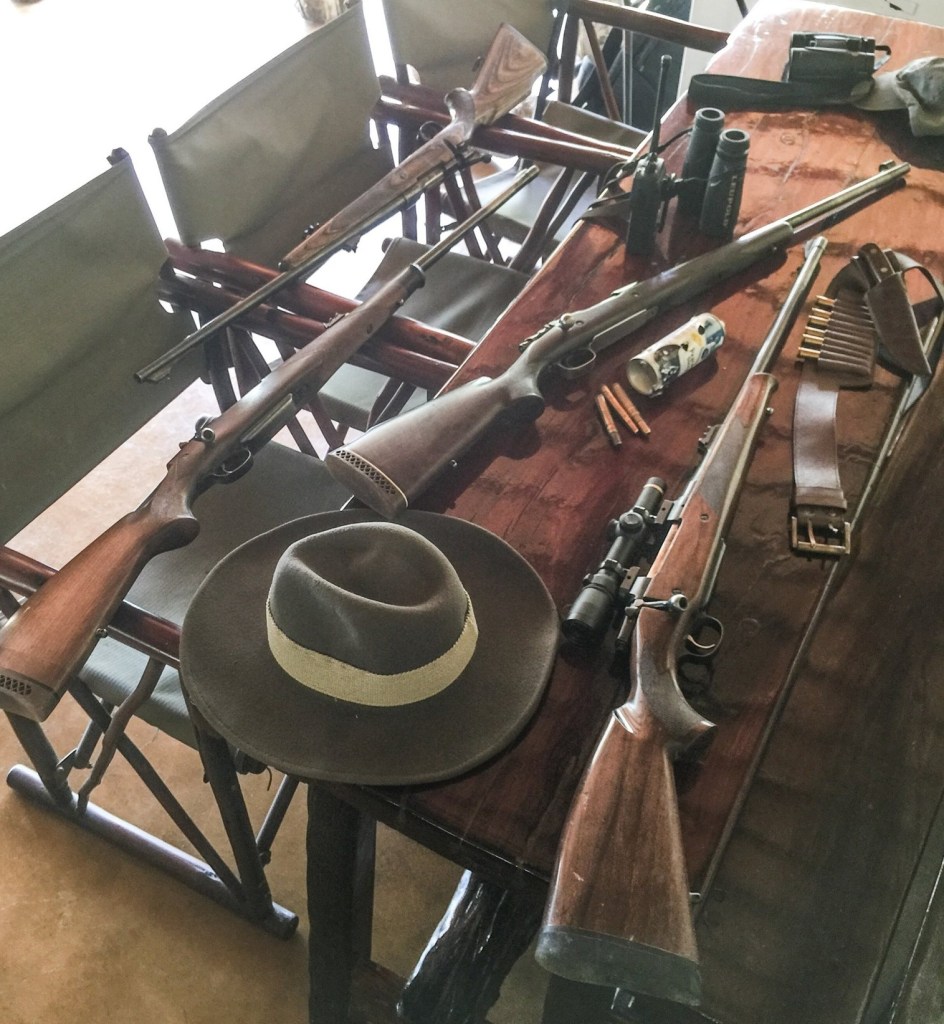
Make a True "Apples to Apples" Comparison
If you're comparing multiple African hunting outfitters to each other and trying to decide which one to book with, ensure you make an "Apples to Apples" comparison of the prices and services offered. Most often, the listed price for one outfitter may appear lower because that particular outfitter charges extra for required services (like airport pick-up) that other places include in their regular pricing.
Also, going back to the previous example of airport pick-up and firearm import permits, the logistics of getting to different parts of Africa often necessitate additional expenses.
For instance, hunt prices in Namibia appear to be among the lowest in Africa at first glance. However, airline flights to the country from the United States are typically significantly longer and more expensive than flights to South Africa. The same goes for shipping trophies and taxidermy back to the United States after the hunt is over.
When you take these things into consideration, the total price of a hunt in South Africa is about the same as (or maybe even a little cheaper) than a comparable hunt in Namibia.
Namibia has some great hunting and there is absolutely nothing wrong with booking with an outfitter there. Just make sure you keep these additional costs in mind.
A good African hunting outfitter or an experienced booking will be happy to provide taxidermy price lists, shipping cost estimates, and recommended airlines prior to your trip. Once again, be very cautious about booking a hunt with someone who is unable or unwilling to provide you the details necessary to make a thorough price comparison.
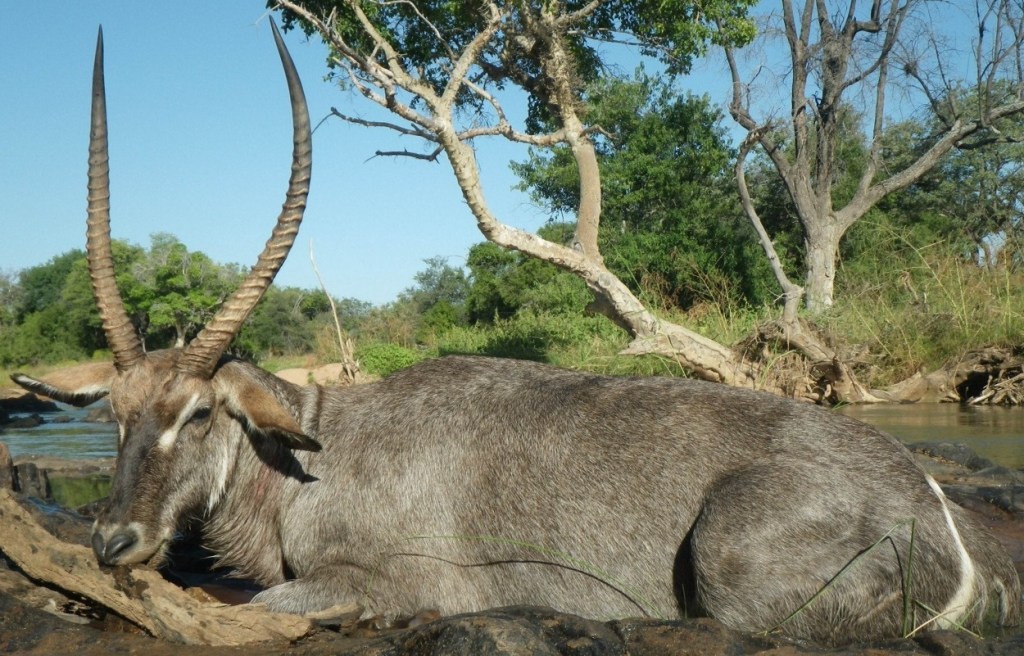
As stated previously, there are lots of great places to hunt in Africa. As long as you ask the right questions, finding a reputable African hunting outfitter that will take good care of you while you have the Africa hunting adventure of a lifetime is not as difficult as you would think.
Like what you see here? You can read more great articles by John McAdams on his hunting blog. Follow him on Twitter @TheBigGameHunt or check out one of his South African hunting safaris.
NEXT: WANT TO HUNT SOUTH AFRICA? THIS IS THE NEXT BEST THING
